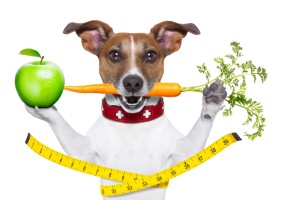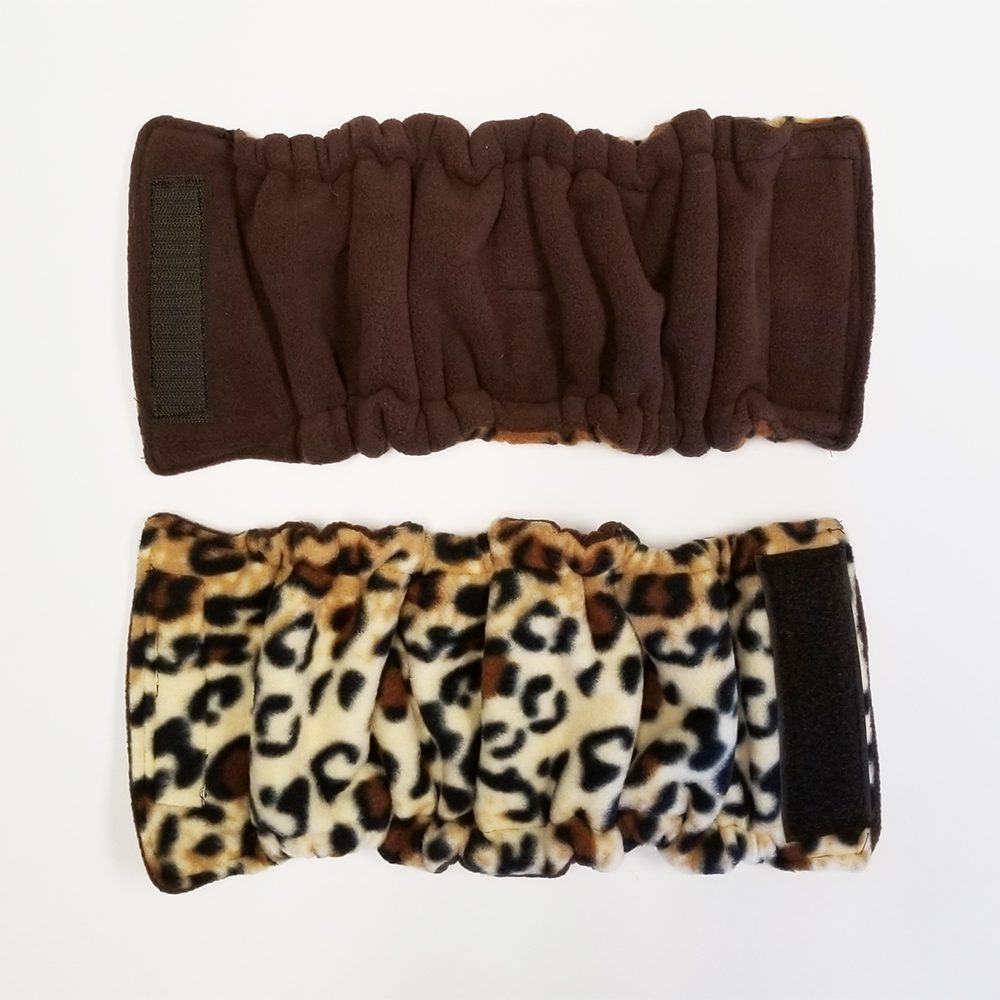Healthy Diet
One rule pertaining to feeding dogs that we cannot stress enough is to be consistent with the brand of food that you select for your hound. Time and time again, when an owner complains that their dog is doing poorly on his food, the problem could have been avoided.
One common scenario is when the owner has just changed the dog’s brand of food. Not realizing that most dogs need a very gradual introduction to new foods, blending the new food with the old for a period of up to two weeks, the owner switches food too quickly. This causes the dog to get diarrhea, which prompts the owner to believe that the dog is allergic to or otherwise cannot tolerate the new food. A different brand of food is bought and the dog, once again, finds a new food in his bowl. With his digestive system already upset by the first change of diet, the introduction of yet another food causes further problems. Veterinarians who are unfamiliar with the owner’s feeding record have, at times, diagnosed these dogs as having physical disorders and recommended a continual bland diet. Although dogs might be intolerant of a certain ingredient in a particular dog food, it is not likely that a dog will have digestive troubles when consistently fed the same high quality diet.
There is a trend with dog owners nowadays to put their dogs on a natural diet, free from artificial ingredients. If you choose to feed a natural raw diet or a cooked diet, be aware that to properly prepare a raw diet requires research and dedication by the owner. If you are concerned about artificial ingredients, there are many natural, commercially prepared dog foods that can accommodate your needs.
We do not recommend that you prepare your own dog food unless you are following the advice of your veterinarian. We feel that in many cases dogs simply do not get all of the dietary components needed for a healthy life. Even if you undertook the task of providing every element necessary for your dog, he would also need to receive these elements in the proper percentages. Too much calcium and vitamins could cause poor bone, joint and other development problems. Meat, although a valuable part of a diet, cannot alone meet the needs of your canine. In the wild, a dog would eat the entire body of his prey, including the partially digested contents of the stomach and intestines. The partially digested plant material contained within would provide a wide range of nutrients that are not found in the muscle meat alone. Unless you have the food that you prepare tested for nutritional content, you cannot be sure that it will meet the changing needs of your growing puppy, active adult or older veteran. Owners that successfully feed home-prepared diets, and there are many, have thoroughly researched the subject and take the time and effort needed to prepare the proper variety of foods. Most raw diets also consist of added balanced nutrient and enzyme supplements currently available on the market.
Our requirements for a dog food are that it provides good nutrition for proper weight, growth, energy levels, a healthy coat and firm stools. Our puppies are fed a food made specifically for puppies until they are at least one year of age. We prefer lamb and rice. If you feed a prepared commercial diet, we suggest that you find a high quality food that your dog does well on and stay with that food.
One important point you should always remember is that a puppy is particularly sensitive to dietary deficiencies and imbalances. Although some pups have problems that are due to genetics, not diet, many pups have growth issues because they were not on a complete and balanced diet during the stressful growth stage. You have only a few months to ensure that your growing puppy receives all that he needs to grow to his full potential. Even a few weeks of dietary stress during this critical stage could do irreparable harm to a pup. Worms also stress pups and could cause the same type of growth problems, so keep puppies free from these parasites.
Amount to Feed
Dogs will vary in the amount of food that they will need to maintain proper weight. Your puppy’s breeder or your veterinarian can guide you on the correct amount to feed your puppy, but keep in mind that this amount will quickly increase as your puppy grows. By the time a pup is a few months of age, he will be eating about twice that of a grown adult. Young puppies should be fed three to four times a day until they are three or four months of age. We recommend moistening dry food with a little water and mixing in about a teaspoon of a good quality canned food. The scent and taste of meat in the canned food will encourage a pup to eat well. Your puppy should consume his food within about ten minutes, and any leftover food can be refrigerated; however, many dogs do not enjoy leftovers and prefer a freshly made meal.
If your puppy consumes all of his food quickly and is still hungry, or if he starts to look too thin, increase the amount of food that you are feeding and have your veterinarian check his stool for worms. If he is too heavy, decrease the amount of food at his feeding, but never skip a feeding. Puppies should always be well covered with flesh, but should not appear to be roly-poly fat. In fact, research has shown that overweight puppies can be at risk of developing joint problems.
At four months of age or so, puppies should be fed at least twice a day, and this schedule should continue throughout your dog’s lifetime. Feeding times should be kept as regular as possible and your dog will come to expect his food at these times. Puppies should not be supplemented with vitamin and mineral supplements unless your vet recommends that you do so, or you are knowledgeable about the product and the effects that it will have on your pup. Some products are beneficial, but in many cases supplementation does more harm than good.
At around twelve to fifteen months of age, your puppy will slowly begin to decrease his food intake. Having completed his growth and attained his full height, he will need less food than when he was actively growing. At this time, his food consumption will reach an optimum level for his particular needs and it should remain fairly constant thereafter.
Some dogs lose interest in food at a year or so of age and refuse to eat enough to stay in good weight. Typically, their frustrated owners add exotic ingredients to their dogs’ food to make it more tempting. This usually works for a meal or two, but then the dog becomes bored with the new taste and eventually refuses it as well. Take heed, for this is the time that many owners switch to a new brand of food, looking for something that the dog will like better. Spoiled hounds are made, not born, and this is how they are formed. It is normal for a dog to skip a meal once in a while, but if your dog refuses to eat for more than a day, it may be the first signs of an illness that needs to be diagnosed by your veterinarian. Take a thin dog to your vet for a health check.
This information is copyrighted and is the property of the author. You may not use any information from this page; however, you may link to this page.




